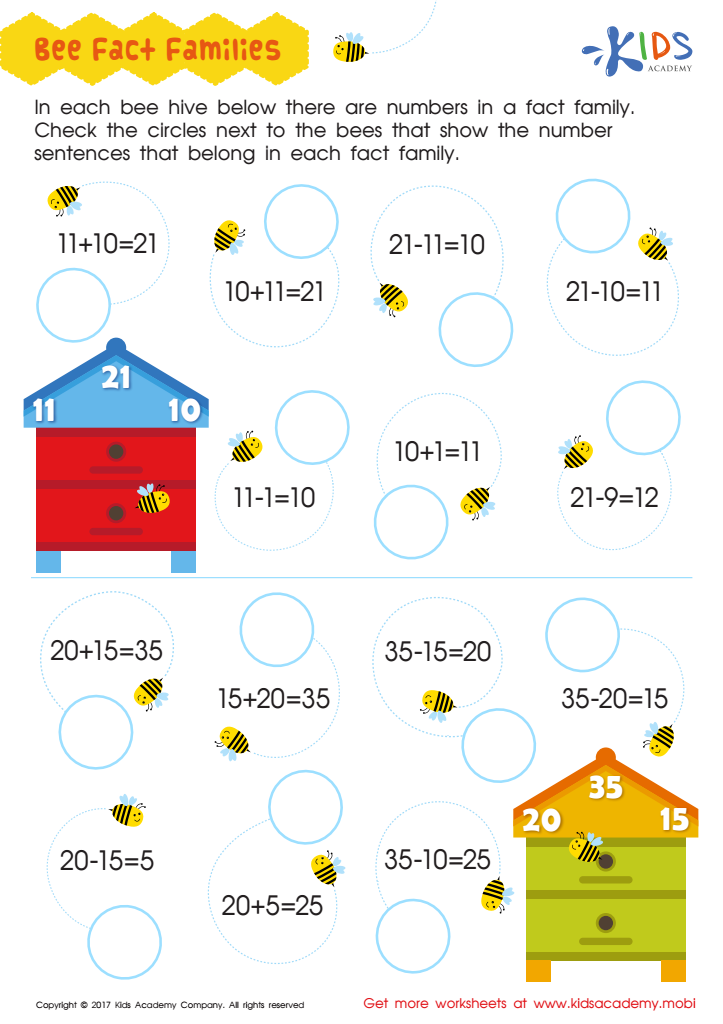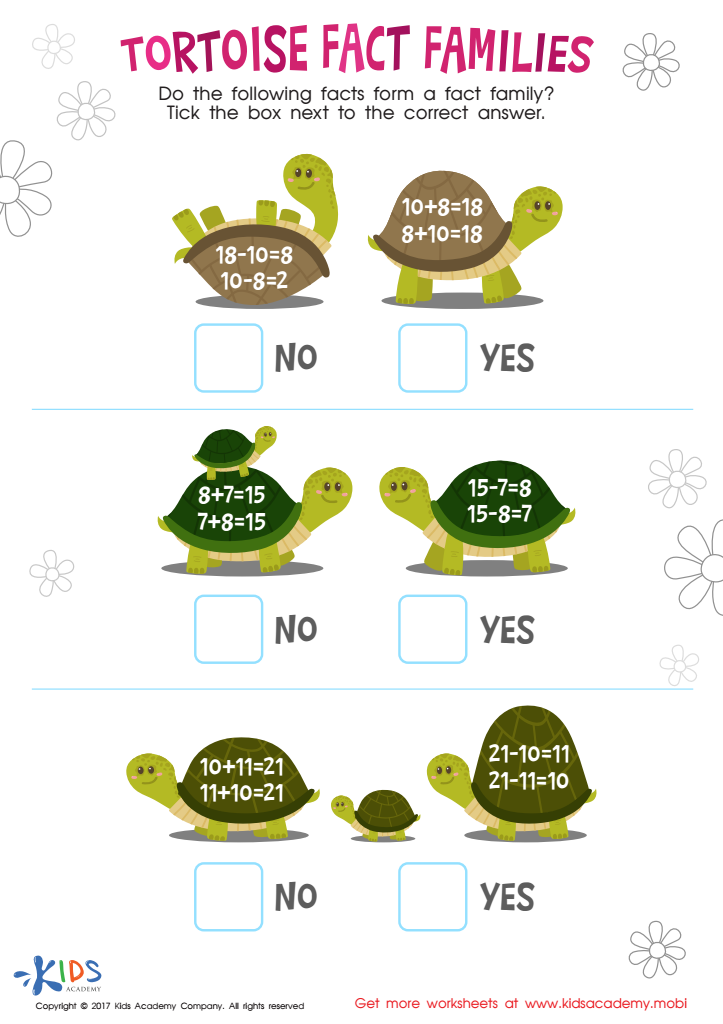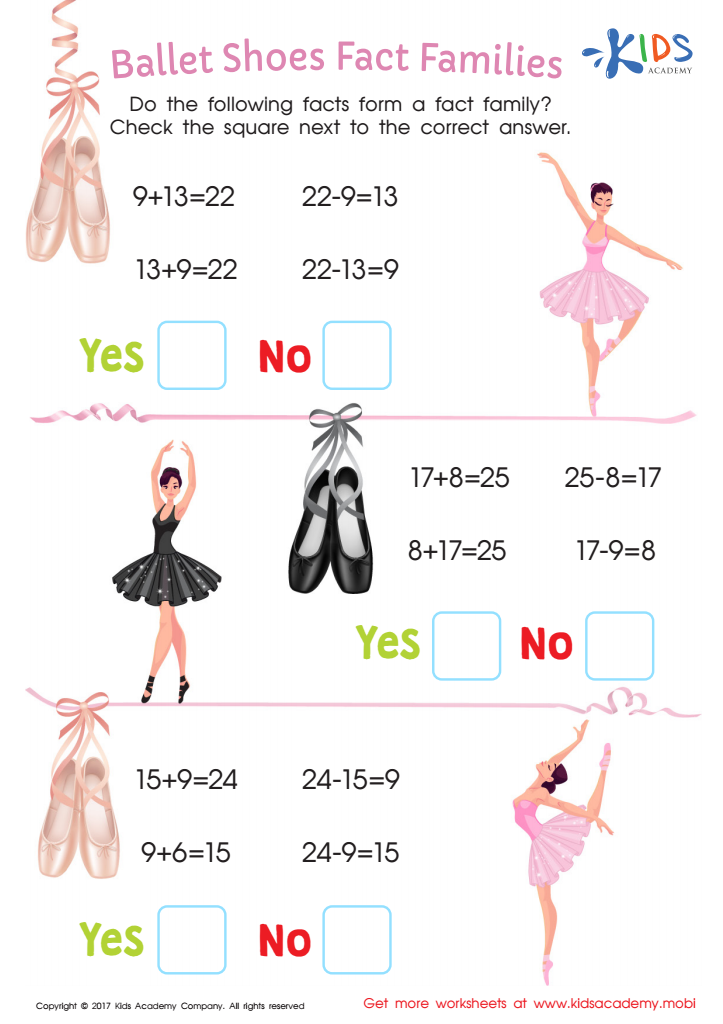Understanding fact families Extra Challenge Math Worksheets for Ages 4-8
3 filtered results
-
From - To
Unlock your child's math potential with our "Understanding Fact Families Extra Challenge Math Worksheets" for ages 4-8. Designed to enhance early learners' comprehension of addition and subtraction relationships, these printables provide an engaging way to practice critical thinking and problem-solving skills. Our worksheets are packed with fun activities and colorful illustrations to make learning interactive and enjoyable. Perfect for educators and parents, these worksheets will help your child build a strong math foundation. Foster a love for math and boost confidence in young learners with our expertly crafted extra challenge resources!


Fact Families Worksheet


Tortoise Fact Families Printable


Ballet Shoes Fact Family Printable
Parents and teachers should care about understanding fact families because it lays the foundational framework for young children to grasp basic arithmetic concepts. Fact families demonstrate that addition and subtraction (or multiplication and division for older children) are interconnected operations. By mastering these relationships, children can develop stronger mental math skills and improve their number sense.
For example, in a simple fact family with the numbers 3, 4, and 7, children learn that 3 + 4 = 7, 4 + 3 = 7, 7 - 3 = 4, and 7 - 4 = 3. This structured approach helps kids see the inverse relationships between operations, making it easier for them to solve not just simple problems but also more complex, multi-step problems as they progress.
Furthermore, incorporating extra challenge math problems encourages critical thinking and problem-solving skills. Engaging with these challenges can boost a child's confidence and instill a love for learning and curiosity in mathematics. Parents and teachers providing opportunities for advanced thinking help ensure that children are not just learning rote mathematical procedures but are really absorbing and understanding concepts at an intuitive level. The early development of these skills can lead to academic success in various areas, fostering a well-rounded and capable learning experience for years to come.
 Assign to My Students
Assign to My Students
















